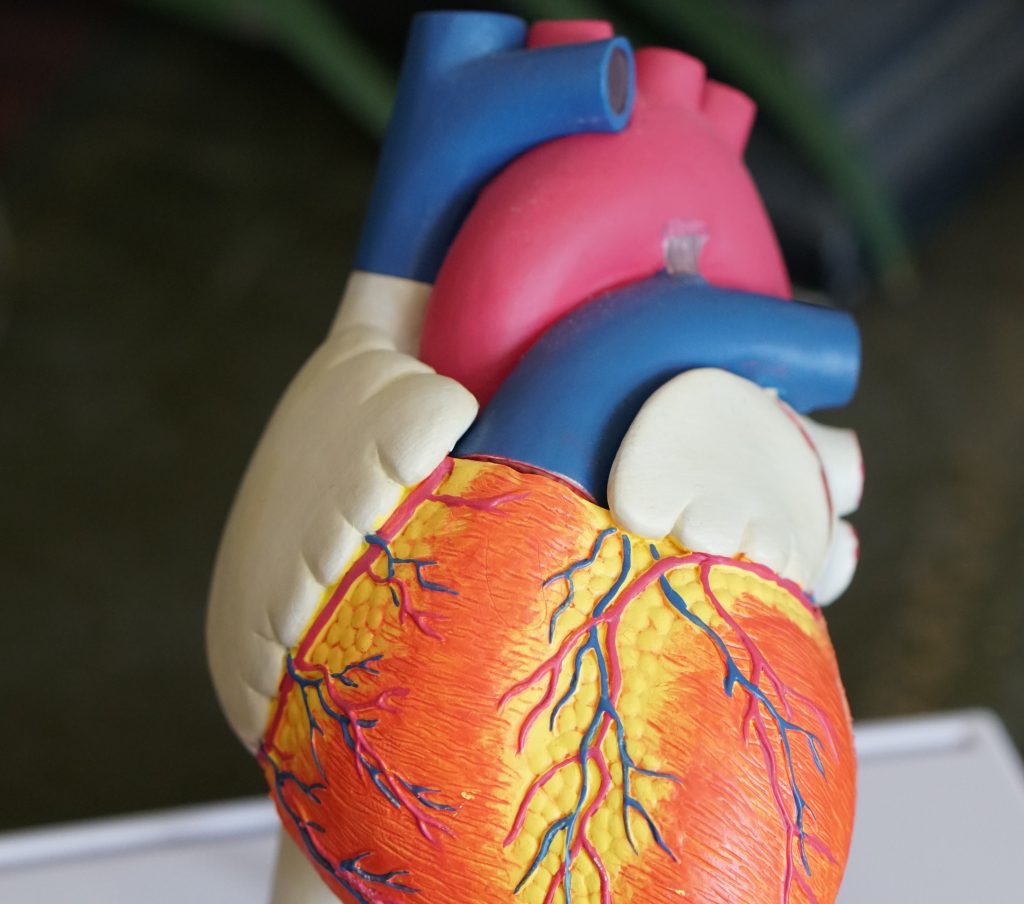June 6 to 13 is World Heart Rhythm Week.
Our 2023 theme is ‘Take Fainting to Heart’, which aims to promote awareness of the link between fainting known medically as ‘syncope’ (pronounced SINK-a-pee) and arrhythmias.
What is heart arrhythmia?
Heart arrhythmia refers to abnormal heart rhythms. These occur when the electrical impulses governing the heartbeat change from their regular pattern.
Heart arrhythmia occurs when the heart beats too quickly, too slowly, or irregularly.
These abnormalities disrupt the heart’s ability to pump blood effectively, potentially leading to complications.
The irregular heartbeat may result in skipped beats, palpitations (a racing or pounding sensation in the chest), or a fluttering feeling.
This condition can affect people of all ages and may vary in severity. Recognising the signs and types of arrhythmia is vital for early detection and management

Types of Arrhythmia
- Atrial Fibrillation (AFib): The most common type, characterized by rapid, irregular contractions of the heart’s upper chambers (atria). AFib increases the risk of stroke and other heart-related complications.
- Ventricular Tachycardia (VT): A rapid heartbeat originating in the heart’s lower chambers (ventricles). It can be life-threatening if not promptly treated.
- Bradycardia: Abnormally slow heart rate, usually less than 60 beats per minute, which can cause symptoms like fatigue, dizziness, and fainting.
- Supraventricular Tachycardia (SVT): Episodes of rapid heart rate originating above the ventricles, often triggered by an abnormal electrical pathway.
- Premature Ventricular Contractions (PVCs): Extra, abnormal heartbeats that cause a sensation of skipped or “extra” beats.
- Wolff-Parkinson-White Syndrome (WPW): A condition characterised by an extra electrical pathway between the atria and ventricles, resulting in a rapid heart rate.
What are the causes of heart arrhythmia?
Heart arrhythmias can have various causes, including:
Electrical system abnormalities: Problems with the heart’s electrical system can disrupt the normal rhythm of the heart. This can be due to congenital abnormalities, aging, or damage to the heart tissue.
Heart conditions: Certain heart conditions can increase the risk of developing arrhythmias. These include coronary artery disease, heart failure, heart valve problems, congenital heart defects, and prior heart attacks.
High blood pressure: Uncontrolled high blood pressure can strain the heart and lead to arrhythmias.
Thyroid disorders: Both an overactive thyroid (hyperthyroidism) and an underactive thyroid (hypothyroidism) can contribute to the development of arrhythmias.
Medications and substances: Certain medications, such as some antiarrhythmic drugs, as well as stimulants like caffeine, nicotine, and recreational drugs, can trigger arrhythmias in some people.
Imbalances in electrolytes: An imbalance in essential electrolytes like potassium, sodium, calcium, or magnesium can disrupt the electrical impulses that control the heart’s rhythm.
Excessive alcohol or drug use: Heavy alcohol consumption or substance abuse can increase the risk of arrhythmias.
Emotional stress or anxiety: Intense emotions or chronic stress can affect the heart’s electrical system and lead to arrhythmias.
Sleep apnea: People with sleep apnea, a condition in which breathing is interrupted during sleep, are at an increased risk of developing arrhythmias.
In some cases, the exact cause of an arrhythmia may not be identified.
What are the symptoms of arrhythmia?
- Palpitations: Sensation of the heart racing, pounding, or skipping beats.
- Chest discomfort: A feeling of tightness, pain, or pressure in the chest.
- Shortness of breath: Difficulty breathing or catching one’s breath during normal activities.
- Fatigue: Unexplained tiredness or lack of energy.
- Dizziness or lightheadedness: Feeling faint, dizzy, or experiencing unsteadiness.
- Fainting spells: Brief losses of consciousness, often resulting from inadequate blood flow to the brain.
If your heart is beating in an unusual way, go immediately to your nearest emergency department or call triple zero (000) and ask for an ambulance.
If you have any general concerns about your heart, speak to your GP at Narara Valley Medical for personal medical advice.
Your doctor can do a health examination and organise a referral to see a heart specialist if need be.
This article is general in nature and doesn’t take your individual health situation, age, and other factors into account. It’s always best to see your GP for personal medical advice.
